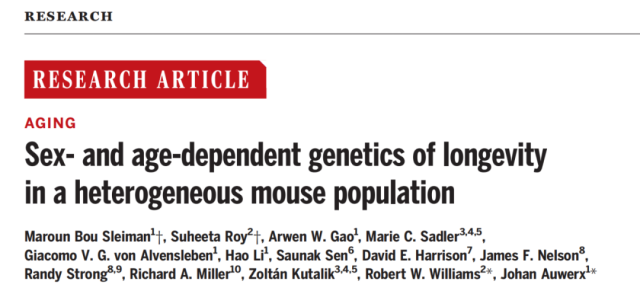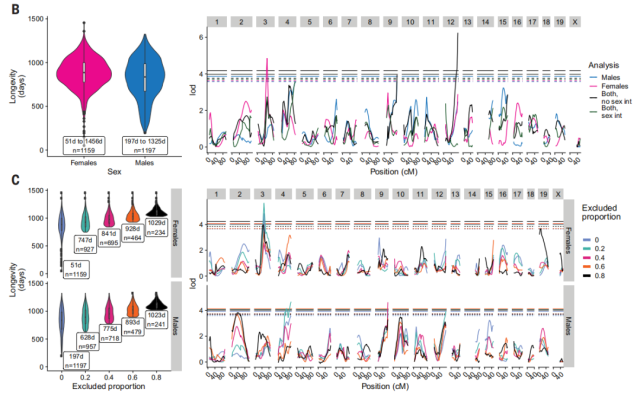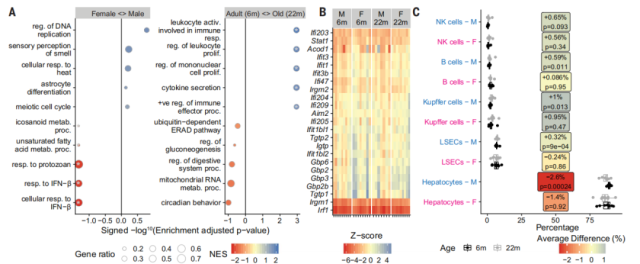Science: Growing faster as a child leads to a shorter lifespan
- Normal Liver Cells Found to Promote Cancer Metastasis to the Liver
- Nearly 80% Complete Remission: Breakthrough in ADC Anti-Tumor Treatment
- Vaccination Against Common Diseases May Prevent Dementia!
- New Alzheimer’s Disease (AD) Diagnosis and Staging Criteria
- Breakthrough in Alzheimer’s Disease: New Nasal Spray Halts Cognitive Decline by Targeting Toxic Protein
- Can the Tap Water at the Paris Olympics be Drunk Directly?
Science: Growing faster as a child leads to a shorter lifespan
- Should China be held legally responsible for the US’s $18 trillion COVID losses?
- CT Radiation Exposure Linked to Blood Cancer in Children and Adolescents
- FDA has mandated a top-level black box warning for all marketed CAR-T therapies
- Can people with high blood pressure eat peanuts?
- What is the difference between dopamine and dobutamine?
- How long can the patient live after heart stent surgery?
Science: Growing faster as a child leads to a shorter lifespan
Longevity and longevity are the vision of most people. Scientists have long puzzled over what determines our longevity. Interestingly, in daily life, it is not difficult for us to find traces of “longevity families”. From this point of view, a person’s genes seem to determine their lifespan.
However, it is not absolutely correct that genes determine lifespan. Even in those long-lived families, it is inevitable that some people will die young. In the general population, it is not surprising that one or two centenarians occasionally appear. Therefore, whether there is a true genetic control of lifespan has been unknown.
On September 30, 2022, the research team of the University of Lausanne in Switzerland and the Health Science Center of the University of Tennessee in the United States published a research paper entitled: Sex- and age-dependent genetics of longevity in a heterogeneous mouse population in the top international academic journal Science .
The study, which looked at more than 3,200 genetically diverse mice, identified several chromosomal regions that affect lifespan in mice. What’s more, some genetic effects differed between males and females, while others only affected lifespan after a certain age.
The research team also used data from the UK Biobank to find that among humans , those who grew faster in childhood lived shorter lives , possibly because they had a higher body mass index (BMI) as adults . These findings support the idea that early growth rate affects lifespan.

Aging is a time-dependent functional decline of molecular, cellular, and organismal homeostasis influenced by multiple environmental and genetic factors.
Genetic studies have identified many conserved genes and mechanisms associated with aging, such as metabolic decline, loss of protein balance, increased genome instability, changes in epigenetic marks, and alterations in telomere length are believed to be factors that promote aging.
Specifically, aging manifests itself as a gradual decline in physical, intellectual, and reproductive capacity, accompanied by an increase in multiple diseases and mortality.
Despite advances in identifying aging pathways and lifespan-extending drugs, scientists still lack an adequate understanding of how genetics, sex, and the environment interact in aging and lifespan determination.
In this latest study, the research team screened 3,276 UM-HET3 mice for longevity gene regulators that were used in the National Aging Intervention Pilot Program (NIA ITP) longevity study. Researchers investigated the genetic basis of longevity in relation to sex, age and environmental factors.

research proposal
When male and female mice were analyzed jointly, the researchers found a previously described longevity locus on chromosome 12 (mice have 20 pairs of chromosomes) .
Surprisingly, when male and female mice were analyzed separately, males and females had different genetic determinants of longevity.
In addition, the research team identified a longevity locus on chromosome 3 in female mice, whereas in male mice this locus was only detected when early death was ruled out. This result suggests that some genetic variants have an effect on lifespan after a certain age.
 Male and female mice have different genetic determinants of longevity
Male and female mice have different genetic determinants of longevity
To prioritize genes under longevity loci, the researchers analyzed liver gene expression in adult and aged mice, looking for differences in expression by sex, age, and gene driver.
They found that interferon-related genes were highly expressed in the livers of female mice, while immune-related genes were overexpressed in the livers of older mice.

Liver gene expression reveals age- and sex-associated differences in gene and haplotype-specific expression
Based on this, the research team identified common age- and sex-specific genetic effects and combined them with model organism and human data to create an interactive resource of hypothesis-built genes that prioritize longevity and body weight.
Finally, the researchers verified Hipk1, Ddost, Hspg2, Fgd6, and Pdk1 as conserved longevity genes using lifespan experiments in C. elegans.

Hipk1, Ddost, Hspg2, Fgd6 and Pdk1 are conserved longevity genes
Not only that, but the research team also explored the mechanism by which longevity genes work, and found a convincing link between lifespan and growth rate.
Past research has found that mice with small litter sizes (5-10 mice born in a litter) live shorter lives because they grow faster in the womb.
In parallel, they also identified a mouse chromosomal region that affects life expectancy and may be associated with growth rate.
The research team then used data from the UK Biobank to show that, in humans, those who grew faster in childhood also lived shorter lives , possibly because they had a higher body mass index as adults. These findings support the idea that early growth rate affects lifespan.

Interactions between early growth, size and lifespan in mice and humans
Taken together, the Science paper shows that genetic influences on lifespan depend on sex and age.
Specifically, some genetic effects differed between males and females, while others affected lifespan only after reaching a certain age .
In addition, the study highlights the importance of life history effects such as early access to nutrition and early growth in longevity in both mice and humans.
References :
https://www.science.org/doi/10.1126/science.abo3191
https://www.nature.com/articles/d41586-022-03113-9
Science: Growing faster as a child leads to a shorter lifespan
(source:internet, reference only)
Disclaimer of medicaltrend.org
Important Note: The information provided is for informational purposes only and should not be considered as medical advice.



